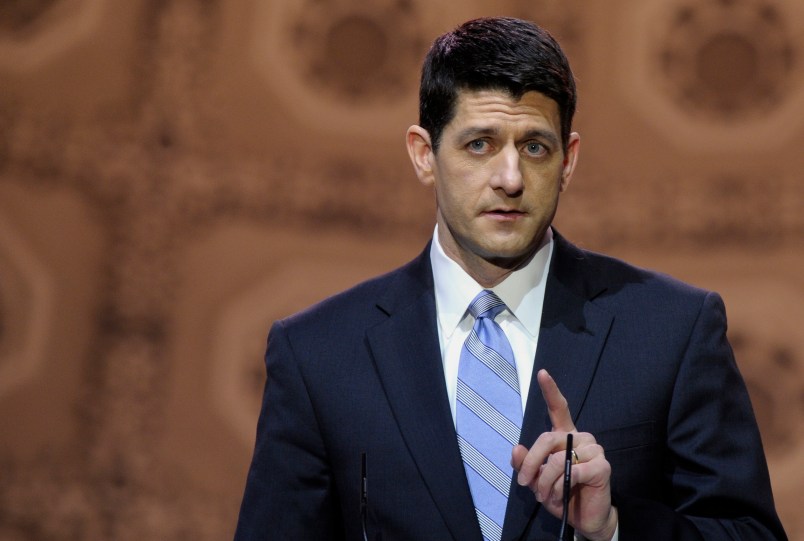Rep. Paul Ryan (R-WI) said Thursday that liberals don’t understand disadvantaged students would rather have parents who care for them than a free lunch at school.
Speaking at the Conservative Political Action Conference, Ryan said Republicans offer their constituents “ideas” while Democrats offer a “full stomach and an empty soul.”
He then told an anecdote he said was relayed to him by Eloise Anderson, Wisconsin Gov. Scott Walker’s (R) Department of Children and Families secretary.
“She once met a young boy from a very poor family, and every day at school, he would get a free lunch from a government program,” Ryan said.
“He told Eloise he didn’t want a free lunch. He wanted his own lunch, one in a brown-paper bag just like the other kids,” he continued. “He wanted one, he said, because he knew a kid with a brown-paper bag had someone who cared for him. This is what the left does not understand.”
Update: Washington Post fact checker Glenn Kessler gave Ryan’s story “four pinocchios,” since Anderson never actually had the conversation herself. Instead, Anderson’s story originated from a television interview with Maurice Mazcyk, a young homeless boy featured in Laurie Schroff’s book “An Invisible Thread.” Free school lunch did not figure in that original story.
h/t Raw Story






